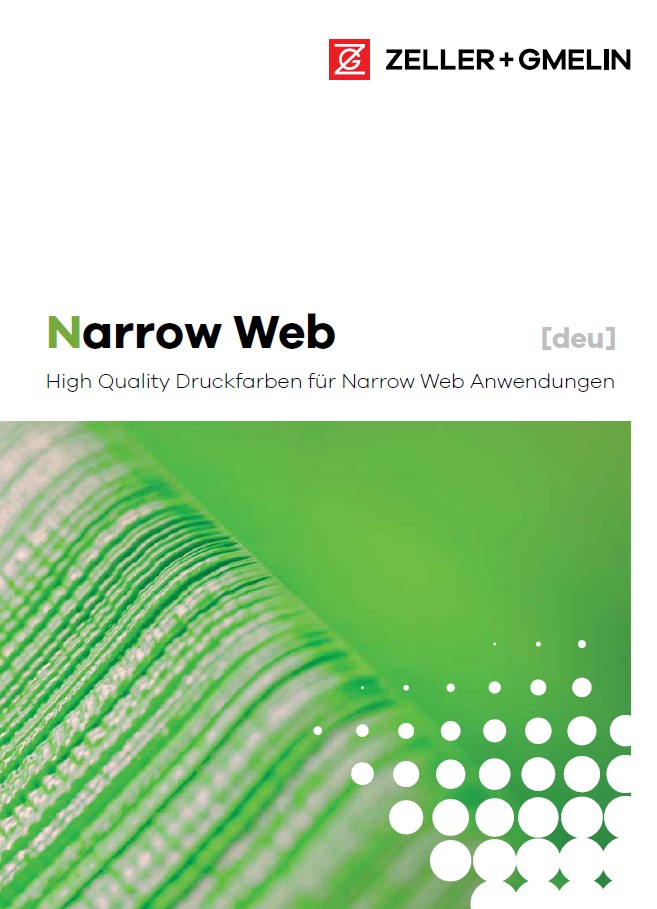Zeller+Gmelin offers a huge range of products for the narrow web segment for all printing technologies, such as offset, letterpress, screen printing, flexo or digital printing. The UVAFLEX and UVALUX ink series set the market standard for UV/LED flexo and offset printing inks in the FCM and non-food sectors. With their modern formulations, they meet all NESTLE and SWISS LIST; EUPIA and GMP requirements and are particularly suitable for demanding applications such as wine labels on uncoated papers, self-adhesive labels or packaging materials for wrap-arounds or shrink sleeves.

Zeller+Gmelin shines with its leading quality of reactive-curing FCM and NON-FCM printing inks and varnishes, backed by comprehensive specialist and application knowledge. Our printing inks skillfully set the scene for brands and packaging. It is not for nothing that renowned brand owners all over the world trust us.









